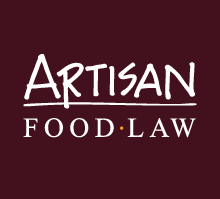The FSA and so-called ‘risky’ foods
Above: Raw minced veal - a common traditional dish in Italy
The FSA’s apparent change of heart on raw drinking milk over the summer earlier this year seemed like a breeze of fresh air, a more rational and reasonable approach to the management of food safety risks looked to be in the making. It now seems that a return to historical paranoia is the order of the day.
On 5 November 2014, this coming Wednesday, the Board of the FSA meets and will discuss ‘Our Approach to ‘Risky’ Foods’, a report prepared by Steve Wearne, the FSA’s Director of Policy. In the report ‘risky’ foods are “those foods that pose, or are perceived to pose, risks that are greater than those posed by the majority of foods that are not subject to specific controls.” Where the authority for defining a group of foods in such subjective terms comes from is unclear, but it seems the FSA is again set on demonising traditional foods which it perceives pose a greater level of risk.
You get a flavour of the bias in the FSA’s thinking from the choice of language used in the report. If you were to order, for example, a rare beef burger and that is what you are served you may conclude it was perfectly cooked. Not so in the FSA’s eyes - it is undercooked!
The report makes no mention of the well documented risks associated with eating highly processed food-like substances which have a far greater impact on the health of the nation. Given the clear statutory duty of the FSA to “protect public health from risks which may arise in connection with the consumption of food” you might think it would focus its efforts on those things which have the biggest impact.
The consumption of almost all foods involves a safety risk. We already have a very effective system for managing risk in the foods we eat – it’s called HACCP or Hazard Analysis and Critical Control Points which all food producers are legally required to implement. HACCP is long established, tried and tested, and when rigorously applied and conscientiously used it is an effective way of managing risk. The consumer would be better served by an FSA that directs its attention to ensuring that HACCP is so used throughout the production of our food rather than inventing a new category of so-called ‘risky food’.
Raw milk and other foods are widely consumed throughout Europe, in many cases they form a central part of a country's traditional cultural food heritage. They are held up with pride not demonised or labelled ‘risky’.
The FSA’s approach is laden with a set of preconceived notions about what foods we should be allowed to eat. It is seriously flawed in being arbitrary, unhelpful and gratuitously damaging to the interests of artisan and small scale food producers. It is tantamount to labelling many traditional foods as ones to be avoided. Consumer choice at home and when eating out in restaurants would be all the poorer. Manage food safety risks by all means, but don’t blacklist great food.
You can watch the Board meeting live online – you can even put questions to the Board. Why not use this as an opportunity to make your views known?





